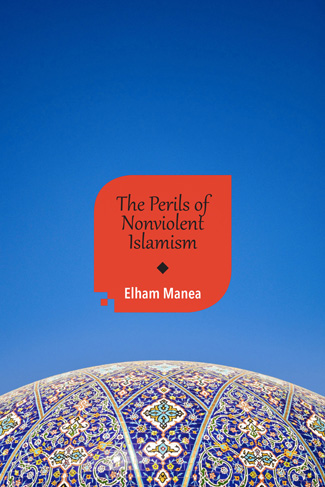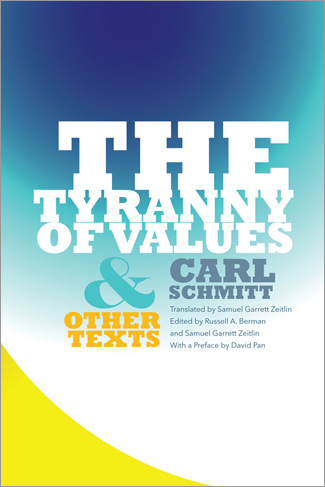By B. Venkat Mani · Friday, February 26, 2021 To read more in depth from Telos, subscribe to the journal here.
On November 26, 2020, when international borders were still partially closed due to the global coronavirus pandemic, a new democratic and peaceful movement was taking shape in India, led by farmers. They wanted to register their protest against three contentious agricultural reform laws covering “Produce Trade and Commerce,” “Agreement of Price Assurance and Farm Services,” and an amendment in the definition of “Essential Commodities.” Thousands of men, women, and children from the farming communities of the northern states of Punjab and Haryana left their homes and fields and drove on tractors and pick-up trucks hitched with “trolleys” (trailers) to New Delhi.
At the borders of the national capital of the world’s largest democratic nation, the farmers witnessed the full display of the power of their own elected federal government. Their attempts to enter the city were blocked by the deployment of a heavy police force, and the capital was closed off at several points; excavators were sent to dig up trenches, elaborate multilayered barricading was erected with massive concrete boulders generally used to prevent the impact of bombings, iron grills normally used in India to control traffic and set up temporary checkpoints were placed, covered with barbwire to assure extra security, and if all of this was not enough, water tankers were brought in to spray cold water on the farmers, who were also beaten up with lathis (batons).
Continue reading →
By Dieter Schönecker · Tuesday, February 23, 2021 To read more in depth from Telos, subscribe to the journal here.
To begin with, Kant was a racist. Some philosophers still hold he was not, but it’s hard to see why (though it may well be disputed whether Kant’s racist thinking is also reflected in his moral philosophy). Kant was not only a racist because he, incidentally, as it were, said some really condescending things about Native Americans, Black people, and a number of other peoples. Kant’s racism has a reason, a specific rationale and theoretical background. But Kant is not only a racist. He’s also, I submit, a semi-racist, an ethnicist, and a cultural chauvinist. I will first briefly explain what all this means. My focus, however, is on another question: Those who have successfully debunked Kant as a racist (such as Charles Mills) all too easily identify one of the four races that Kant postulates, to wit, the so-called “white race,” with white Europeans (both old and new). But this is a mistake. The white race Kant talks about, I further submit, is not to be identified with white Europeans.
Continue reading →
By Telos Press · Tuesday, February 23, 2021 To read more in depth from Telos, subscribe to the journal here.
Writing at the Investigative Project on Terrorism website, Phyllis Chesler reviews Elham Manea’s The Perils of Nonviolent Islamism, now available from Telos Press. Save 20% off the list price when you purchase your copy in our store.
An excerpt of the review:
 In The Perils of Nonviolent Islamism, her fourth book in English, the University of Zurich political scientist, author, activist, and consultant offers a warning to the West. In The Perils of Nonviolent Islamism, her fourth book in English, the University of Zurich political scientist, author, activist, and consultant offers a warning to the West.
In Manea’s view, “nonviolent Islamism” is the basic building block that leads to violent jihad. And our misreading of that reality can lead to real harm.
If we continue “cancelling” politically incorrect ideas and speech, continue “vilifying dissent,” and “insisting upon the infinite guilt of the West” then, as Russell A. Berman writes in the foreword to this work, “we should expect the real-world consequences of this ideology soon to become clearer and rougher.” Manea believes that repressing dissent can easily turn into repressive practices. “Cancel culture” may indeed be our “Islamism.”
Nonviolent Islamism’s insidious nature is one of Manea’s most important points. Westerners have been hopelessly gullible in their choice of “smiling and patient” Saudi-funded Muslim Brotherhood/Salafi representatives as their go-to experts on both Islam and Muslims.
“One cannot combat an ideology and fundamentalism by working with the very groups that promote that ideology,” she writes. Further, Western cultural relativism and doctrines of “multiculturalism” has served us and freedom-loving Muslims very, very poorly.
This battle, she writes, is “the global challenge of the 21st century.”
Continue reading →
By Telos Press · Monday, February 22, 2021 In the Spring issue of American Affairs, Blake Smith writes at length about Carl Schmitt’s “The Tyranny of Values,” the title essay of the collection The Tyranny of Values and Other Texts, published by Telos Press. Edited by Russell A. Berman and Samuel Garrett Zeitlin, translated by Samuel Garrett Zeitlin, and with a preface by David Pan, Schmitt’s The Tyranny of Values and Other Texts is now available for purchase in our online store. Save 20% off the list price by using the coupon code BOOKS20 during the checkout process.
An excerpt from the review:
 To those familiar with his most famous writings, it may seem that Carl Schmitt is an enemy of liberalism. In texts such as The Concept of the Political (1932) and Legality and Legitimacy (1932), Schmitt critiqued the Weimar Republic and the liberal tradition, the weaknesses of which Weimar seemed to embody. Liberalism, Schmitt argued, depends on systematic neutralizations—fictions by which all individuals and points of view are imagined to be equal, and by which the confrontations of political life seem to be transformed into peaceful, rule-governed debates with open-ended, undetermined outcomes. His writings during the Nazi era endorsed a new understanding of politics in which such deceptive procedures are replaced by the decisions of a charismatic leader who acts on behalf of a homogeneous people against its internal and external foes. Radicals of the Right and Left have found inspiration in Schmitt’s analysis of liberalism and calls for moving beyond it to a realistic and engaged theory that recognizes the insuperable conflicts at the heart of politics. To those familiar with his most famous writings, it may seem that Carl Schmitt is an enemy of liberalism. In texts such as The Concept of the Political (1932) and Legality and Legitimacy (1932), Schmitt critiqued the Weimar Republic and the liberal tradition, the weaknesses of which Weimar seemed to embody. Liberalism, Schmitt argued, depends on systematic neutralizations—fictions by which all individuals and points of view are imagined to be equal, and by which the confrontations of political life seem to be transformed into peaceful, rule-governed debates with open-ended, undetermined outcomes. His writings during the Nazi era endorsed a new understanding of politics in which such deceptive procedures are replaced by the decisions of a charismatic leader who acts on behalf of a homogeneous people against its internal and external foes. Radicals of the Right and Left have found inspiration in Schmitt’s analysis of liberalism and calls for moving beyond it to a realistic and engaged theory that recognizes the insuperable conflicts at the heart of politics.
Continue reading →
By Telos Press · Thursday, February 18, 2021 In today’s episode of the Telos Press Podcast, Camelia Raghinaru talks with Ruth Starkman about her article “Making Human Rights Readable: The Report of the Commission on Unalienable Rights,” one of a group of essays from Telos 192 (Fall 2020) on the U.S. State Department’s Commission on Unalienable Rights. An excerpt of the article appears here. If your university has an online subscription to Telos, you can read the full article at the Telos Online website. For non-subscribers, learn how your university can begin a subscription to Telos at our library recommendation page. Purchase a print copy of Telos 192 in our online store.
Listen to the podcast here.
Continue reading →
By Telos Press · Tuesday, February 16, 2021 In today’s episode of the Telos Press Podcast, Camelia Raghinaru talks with Russell A. Berman about his article “Reflections on Rights,” one of a group of essays from Telos 192 (Fall 2020) on the U.S. State Department’s Commission on Unalienable Rights. An excerpt of the article appears here. If your university has an online subscription to Telos, you can read the full article at the Telos Online website. For non-subscribers, learn how your university can begin a subscription to Telos at our library recommendation page. Purchase a print copy of Telos 192 in our online store.
Listen to the podcast here.
Continue reading →
|
|




